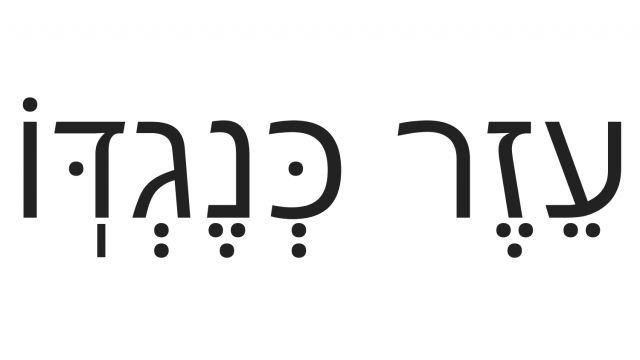The Judeo-Christian story of the creation of humans in Genesis 2:18 is quaintly androcentric, describing the female sex as a supplemental creation to the male sex. The Hebrew description of the purpose of woman, עֵזֶר כְּנֶגְדּֽוֹ – most reasonably translated as counterpart – is often given an even more chauvinistic translation to describe woman as a helper or companion for man.
The androcentric perspective has continued into the modern era with women struggling to establish all sorts of equality with men. This is utterly bizarre when considered in the context of our species and its survival: It is males who are the adjunctive gender. The only essential role that men play in the survival of the human species is to supply sperm to fertile females. Everything else that men do is secondary to the essential and consuming labor of mothers.
Human females have a heavy reproductive burden: We are bipedal mammals with upright backs. This makes carrying a fetus awkward and delivering a baby often debilitating and even lethal. Human babies are altricial and have a longer period of dependence than any other animal.1 We have hungry, enormous brains but relatively weak digestive systems. Mankind exists because women have the capacity to balance and serve the onerous task of bearing and rearing children to maturity.2
It is males that are relegated to a supporting role in the human life cycle. Human males have virtually no reproductive burden – if men did nothing but make a momentary seminal deposit and then disappear humans would be fine. Another way to look at this is in terms of male biological freedom, and it’s interesting to see how that freedom is exploited. In phenotypic terms, human males can afford to display a greater variance of every measurable trait. While this leads to more apparently pathological behavior, it also leads to extremes of constructive traits that have fostered the development of human innovation and the proliferation of civilization.3
1 Interestingly: the time it takes an species’ young to mature is strongly correlated with the number of cortical neurons in its brain. Humans have far more cortical neurons than any other animal.
2 A few weeks after posting this I found this book review of Mom Genes, which details the remarkable neuro-physiological transformation that occurs in women who become mothers.
3 Is There Anything Good About Men? is a book I later found that appears to delve into this in more detail. I found an earlier paper by the author bearing the same title that is a really fascinating and worthwhile read.

For all of her adaptations, a woman, and even more, a mother, is vulnerable. The mother/baby unit is extremely vulnerable. They aren’t self-sufficient, they’re physically weak with real needs. Someone has to provide for them. Someone has to protect them. When men shirk these duties societal breakdown ensues.
Not surprisingly we find women remarkably oriented towards establishing communal alliances that protect and sustain them. Those alliances include men when possible, but from an anthropological view men are an expendable luxury – which I found well elaborated by Baumeister in Is There Anything Good About Men?. I’ve also begun reading Tucker’s book Mom Genes and its second chapter contains other interesting sociological details about the role of men in child rearing. One morsel: If you have to choose between a father and a grandmother to raise a child, the latter produces better outcomes.
That’s interesting. But considering the dangers of the primitive world, I can’t imagine mother and baby surviving without the father. I guess extended families could make up for his absence, but apart from Amazons, those extended families would have to include men, wouldn’t they?
In terms of the survival of an agricultural, or even primitive gatherer, society I haven’t seen any evidence that men are clearly necessary other than as an antidote to other men. The only predators that pose serious threats to groups of humans are other human males.
There seems to be a pattern of men hunting for meat, but that’s usually a luxury – most humans have subsisted without wild game – and those hunters also impose a heavy load on more dependable sources of food. Interestingly: there seems to be a male instinct to leave their families during times of famine or pestilence – times when extra bodies and stomachs pose a clear risk to survival.
Baumeister elaborates on the evolutionary pressures that produced men that tend to be aggressive risk-takers with wide alliances. By luck that formula has also produced cultural breakthroughs that have vastly increased the rates of human survival and quality of life. But even when large numbers of men have died in war or other misadventure, women have always been capable of bearing, feeding, and sheltering the children.
I’ll read Baumeister’s paper. I’m thinking about the accounts of the 2012 mass shooting in the Aurora, Colorado theater. As soon as the shooting started everyone hit the floor and the men threw themselves over the women to shield them. No one told them to do that. That’s why men are awesome.